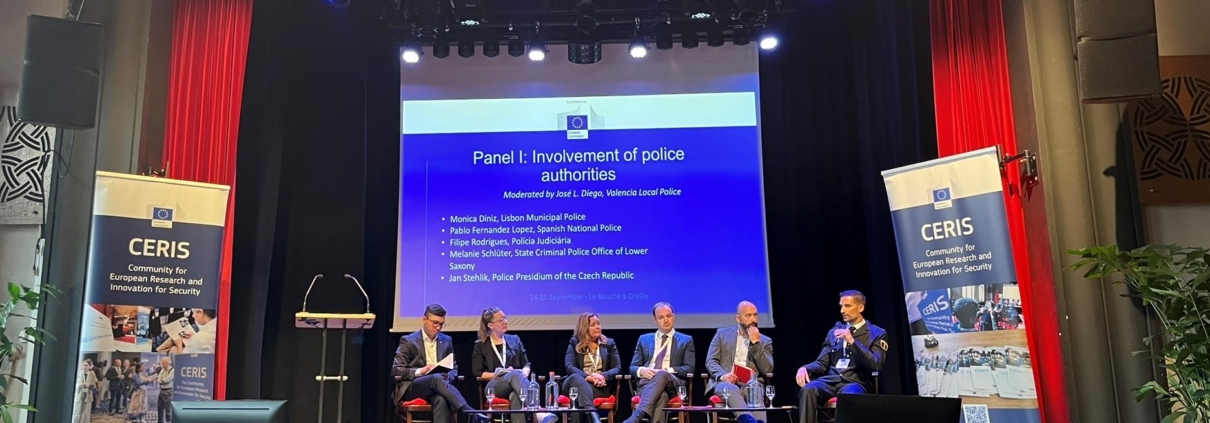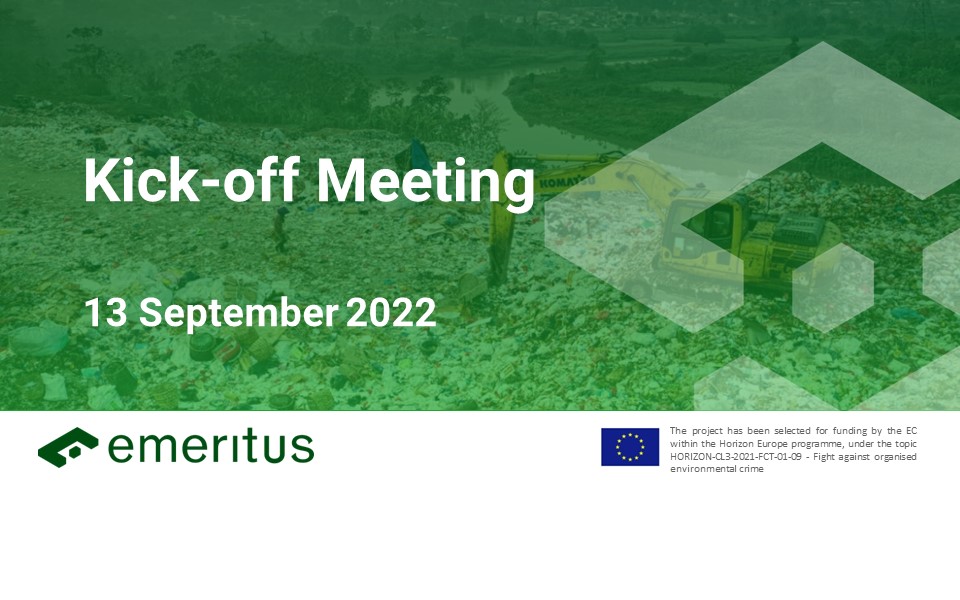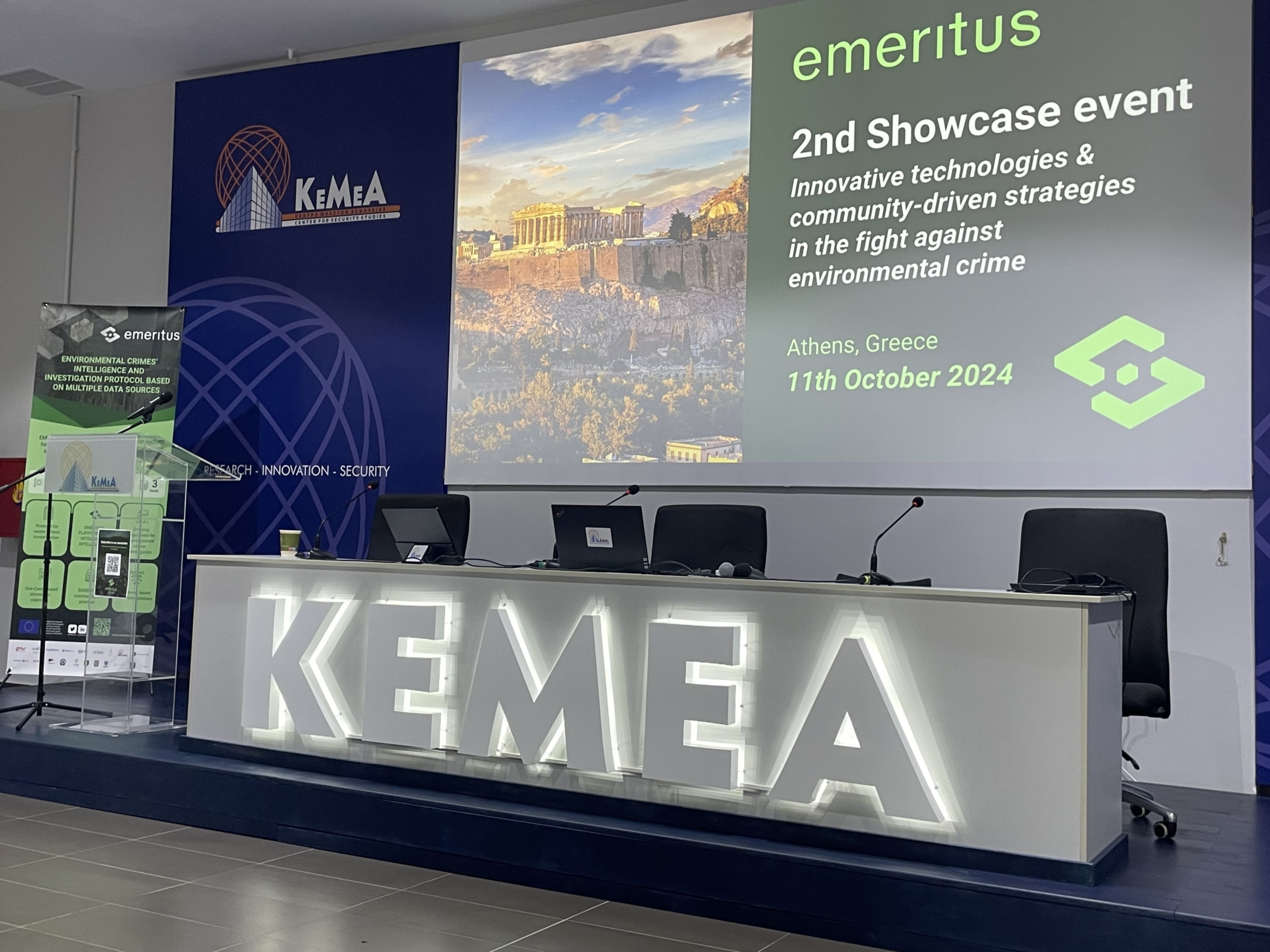EMERITUS at the 2024 CERIS Annual Event
On September 24 and 25 2024, the CERIS (Community for European Research and Innovation for Security) annual event took place in Brussels, bringing together key stakeholders to discuss the involvement of practitioners in security research. Organised by the European Commission DG HOME, the event highlighted the critical role of Law Enforcement Authorities (LEAs) and Border Guards (BGs) in shaping security innovations and ensuring the effective implementation of advanced solutions.
The EMERITUS project attended the event, aligning its mission to combat waste-related environmental crimes with the broader theme of enhancing LEAs’ capacity through innovation. As environmental crime becomes increasingly complex and cross-border in nature, the tools and methodologies used by LEAs need to evolve accordingly.
Elevating practitioners in research
The event began with a keynote that emphasised the importance of delivering practical solutions to LEAs and ensuring that research is more than theoretical but actively implemented on the ground. The EC acknowledged the increasing necessity of involving practitioners in research projects, which has been leading to several significant initiatives such as the current mandatory participation of practitioners in EU-funded projects to validate and enhance the real-world application of research outcomes. The EC mentioned the creation of practitioner networks to facilitate collaboration and exchange of best practices, and also the empowerment of EU agencies, such as Europol, with stronger mandates to drive innovation and security research.
Projects and initiatives showcased during the event, such as Europol’s Innovation Strategy, highlighted successful examples of this approach. Europol’s strategy aims to break down the existing limits between research and law enforcement by creating platforms like the Europol Tool Repository (ETR), which provides access to innovative tools. This makes easier for LEAs across Europe to experiment with and implement new technologies. However, despite these successes, challenges remain, particularly when it comes to integrating LEAs into the research and development processes, as these latter often moves at a different pace compared to their operational needs.
LEAs as active innovators in research
The central message of the event was clear: for research to be impactful, LEAs need to transition from being mere end-users to active participants and co-creators in the research and innovation process.
During the first panel discussion, moderated by a delegate from the Valencia Local Police, the focus was on how LEAs can be better integrated into research and innovation projects. Representatives from police forces across Europe – including the Czech Police, the Lisbon Municipal Police, the Spanish National Police, the Polícia Judiciária in Portugal, and the State Criminal Police Office of Lower Saxony – shared their perspectives on the barriers and opportunities in this area. A common theme was the importance of involving LEAs in the early stages of project design to ensure that research outcomes are directly applicable to their work.
It was also stressed the need for a structured approach to LEA involvement, from identifying relevant research topics to project execution and post-project dissemination of results. This long-term commitment to innovation aligns with EMERITUS‘ core goal: ensuring that LEAs not only shape the development of tools and protocols but also adopt and implement them effectively in the field.
Challenges and opportunities for LEAs in innovation
Despite the enthusiasm for greater LEA involvement, several obstacles were highlighted during the event. Language barriers, variations in legal frameworks across EU member states, and the complexity of EU funding calls were cited as ongoing challenges. Additionally, LEAs often face internal scepticism regarding innovative approaches, particularly when results from research projects are not immediately aligned with their operational demands.
A key takeaway was the need for LEAs to become more proactive in driving security research. The Innovation Manager from the Belgian Police, emphasised the role of leadership in fostering innovation within police forces. He pointed to the need for LEAs to develop internal champions for research and innovation, individuals who can advocate for and implement new technologies in their respective agencies.
In response to these challenges, the EMERITUS project is built on close collaboration with LEAs to ensure that its solutions are not just innovative but practical and tailored to the specific challenges they face in environmental crime investigation. By involving law enforcement practitioners at every stage, from defining technical specifications to validating the effectiveness of new technologies, EMERITUS aims to build trust and create tools that truly meet the needs of LEAs across Europe.
The CERIS 2024 annual event made it clear that for security innovation to be truly effective, it must be co-developed with the active participation of LEAs.





